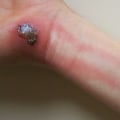If you've always thought that cosmetic surgery and plastic surgery were one and the same thing, you're not alone. A significant number of plastic surgeons choose to focus their practice on cosmetic surgery and, as such, the terms are often used interchangeably. A big problem for many people is that a cosmetic surgeon and a plastic surgeon can be combined. But while cosmetic surgery is a type of plastic surgery, cosmetic surgeons can only perform cosmetic procedures, explains Dr.
Alan Matarasso, President of the American Society of Plastic Surgeons (ASPS). In reality, there is often significant overlap between reconstructive and aesthetic plastic surgery, as they share many of the same underlying surgical principles. Regardless of the type of plastic surgery performed, the ultimate goal should always include maximizing the cosmetic result as much as possible. Regardless of the plastic surgery procedure being planned, it is very important that patients discuss the anticipated aesthetic outcome with their surgeon ahead of time to ensure proper expectations are met.
Enable JS and disable any ad blocker. The terms plastic surgery and cosmetic surgery are often used interchangeably. Although both disciplines of medical science are aimed at improving a person's body, they are different from each other in many ways. Even plastic and aesthetic surgeons may have different qualifications and experience.
The differences between cosmetic surgery and plastic surgery are as follows. Since plastic surgery and cosmetic surgery are often used interchangeably to describe procedures such as breast augmentation, tummy tuck, facelift, and rhinoplasty, many people believe that plastic surgeons and cosmetic surgeons are the same. Cosmetic surgery is performed to improve the overall aesthetic appearance by reshaping and adjusting the normal anatomy to make it more visually appealing. Most people think that plastic surgery is the best-known surgeries that film artists have undergone, so that they can preserve their youthful appearance.
If they wish, they can take steps to gain experience in cosmetic surgery through a fellowship training program, workshops, seminars and conferences, and then obtain certification from the American Board of Cosmetic Surgery after they have completed the necessary requirements. Education and patient safety are at the heart of the American Academy of Cosmetic Surgery (AACS) mission to promote the specialty of cosmetic surgery and quality patient care. Plastic surgery is defined as a surgical specialty dedicated to the reconstruction of facial and body defects due to congenital disorders, trauma, burns and diseases. The views expressed in this blog are those of the author and do not necessarily reflect the views of the American Society of Plastic Surgeons.
Cosmetic surgery is a unique medical discipline that focuses on improving appearance through surgical and medical techniques. By selecting a plastic surgeon certified by the American Board of Plastic Surgery, you can be sure that your surgeon has completed the necessary training and has the experience and knowledge necessary to perform your surgery safely. It is important for the public, as well as healthcare professionals, to understand these differences so that patients can make informed decisions when choosing a surgeon for a specific procedure, be it a plastic or cosmetic surgeon. If that doctor is certified by the American Board of Plastic Surgery, you know that the doctor has passed rigorous tests and is more likely to be well-trained.
Although both plastic surgery and cosmetic surgery procedures are performed to improve the patient's body, the general philosophies that guide their goals, training, and research for patients' end results are different. Plastic surgery is a broad field that covers both cosmetic (aesthetic) and reconstructive procedures. Those doctors may offer some cosmetic options, but they may not give patients all their options or be able to manage complications. Plastic and cosmetic surgery can include surgical, minimally invasive, or even non-surgical procedures.
Patients who hire doctors who perform cosmetic procedures in their office or in an outpatient surgery center should ensure that the doctor is approved to perform the same procedures at a local hospital, Jacobs said. . .







